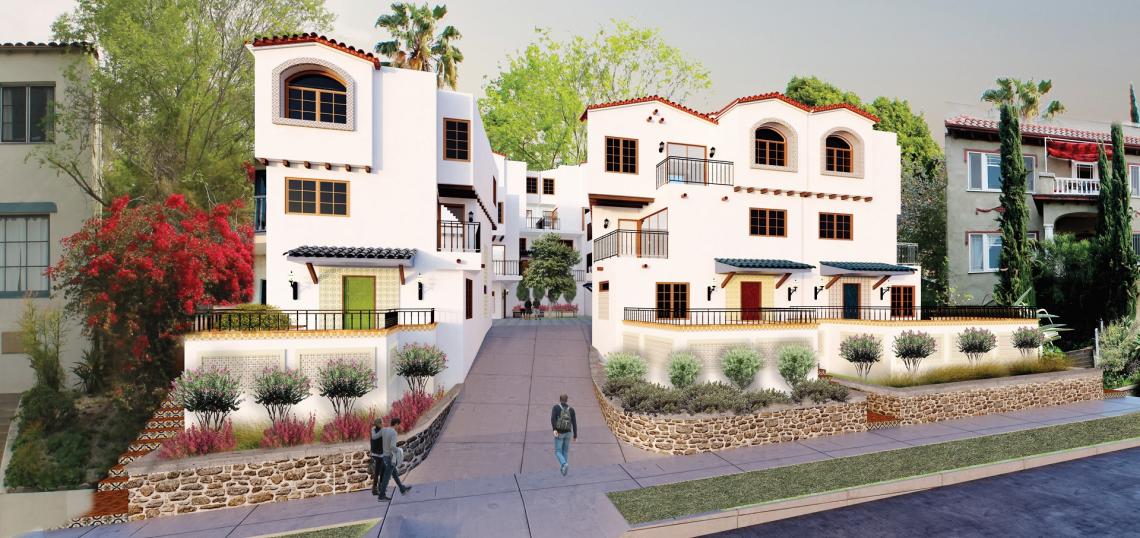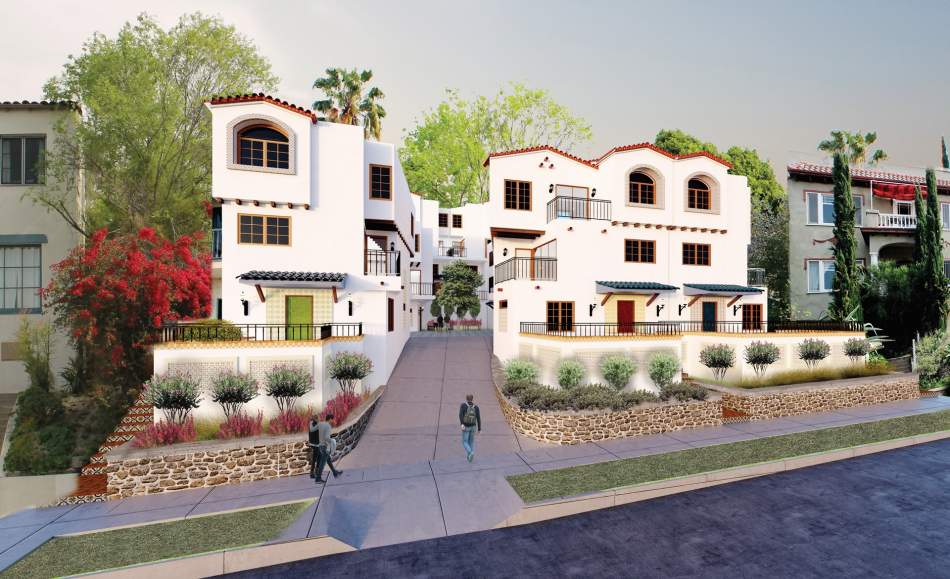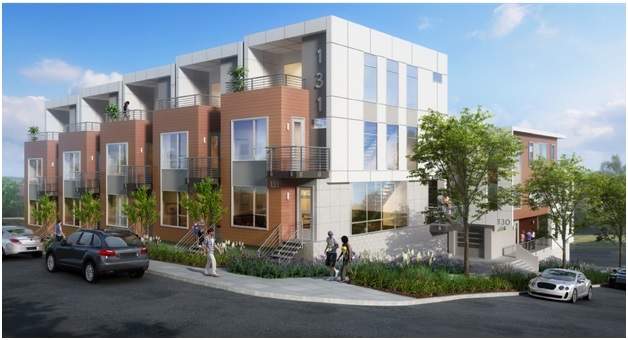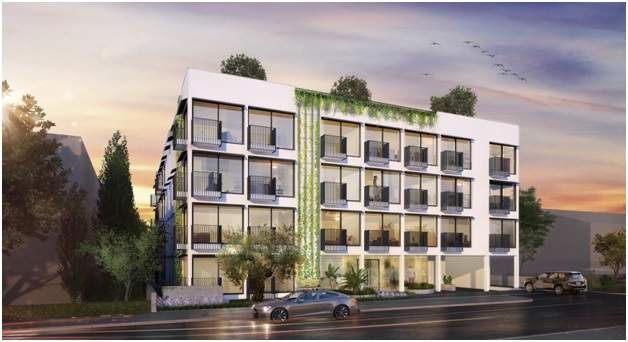Ryan Granito is the Head of West Coast Origination at RSE Capital Partners, an affiliate of Fundrise. His primary role is providing acquisition financing for development deals in up-and-coming submarkets of Los Angeles. Ryan graduated from the University of Pennsylvania with a history degree and continued his education with an MBA from the University of Southern California. Ryan has over 15 years of development experience from Lennar, the San Diego Housing Commission, Bolour Associates and now RSE Capital Partners / Fundrise.
Talk to me about your educational background and early days at Lennar
I grew up in Orange County and attended Villa Park High School, then received my undergraduate degree in History from the University of Pennsylvania. Out of college, I began working at a large company, Lennar, and benefited from their structured approach, having no background in real estate development. I quickly realized I needed to round out my knowledge of business and finance and ended up at USC where I got my MBA.
Lennar exposed me to many different aspects of development. I was in project management, where I took a project from a tentative map through final engineering and site development. This included permits, site development, and overseeing the life cycle of the project. I started with three-story attached homes where I would deliver the models and transfer the pads to the homebuilder division for them to finish. We were responsible for the budget schedule, obtaining all permits, satisfying the conditions of approval, horizontal infrastructure site improvements, and exonerating surety bonds upon project completion.
What is crowdfunding? And how is it different from investing with traditional capital (institutions, family offices, etc.)
“Crowdfunding” is simply the idea of aggregating many small investments into a larger investment pool. When Fundrise was started in 2012, we were the first “crowdfunding company” in the real estate industry. We’ve since evolved our platform to offering public non-traded REITs – similar to Blackstone’s BREIT or Starwood. The difference between our REITs and Blackstone’s REITs is we raise our capital directly from individuals through our website and mobile app vs going through the traditional broker-dealer networks. Through this effective use of technology, we are able to streamline the fundraising process, cut out the middleman, and ultimately reduce the overall cost associated with raising capital for real estate investments.
From a securities perspective, how does the SEC see Fundrise?
The reason we are able to raise funds directly from everyone, i.e. both accredited and unaccredited investors, is because of our use of Regulation A+, which is effectively a mini-public offering. At the end of 2018, we managed 14 of these mini-public investment vehicles, both eREITs or eFunds, with more than 75,000 unique investors. Each of these offerings is qualified with the SEC (a level of regulatory oversight that is significantly higher than a traditional private real estate fund) and must produce regular on-going public reporting including things like an annual audit. By utilizing this offering structure, we are able to open up our investments to anyone for as little as $500.
How does your process work from origination to closing?
I am primarily focused on origination, sourcing and qualifying the best deals, which are then transitioned to our underwriting team who handle the majority of the diligence and closing process.
Meaning, I spend a lot of my time out in the market and seeing who’s doing what and identifying where our capital is best placed. Like a traditional PE fund, we tend to identify potential projects either directly from a developer or through capital brokers. We then work to understand the project’s feasibility, analyzing the sponsor quality, market demand, and overall financing structure. After conducting a preliminary underwrite we are able to issue a term sheet, based upon that initial review. Once we get a signed term sheet, we will go through a typical diligence and closing process. Because we invest our own discretionary capital and have a team solely dedicated to this specific market, we tend to be able to close deals very quickly, in some cases as little as two weeks.
This structure also gives us flexibility to invest both across asset types and throughout the capital stack; including anything from stabilized multifamily preferred equity for ten years behind agency debt, to land entitlement loans lasting between 12 and 24 months.
What are the most common projects you have invested in LA, and what makes LA an attractive real estate market?
The bulk of our business in Los Angeles has been providing acquisition financing for small lot subdivision land entitlement (SLOs) or multi-family land entitlement and development in Transit Oriented Community Zones (TOC). I think we’ve been successful to date because of our ability to go higher in the capital stack (up to 85%) as well as our ability to understand and underwrite entitlement work.
Generally, we are bullish on LA as a market because of the strong demand for quality housing combined with the relative undersupply. We tend to like SLO and TOC development because they get at this tension of figuring out ways to create greater density or supply of housing in in-fill areas with high demand.
You have been at Fundrise for about 4 years now, how have you seen it change?
The obvious change has been in our headcount. We have grown from approximately 20 people when I started to nearly 100 today. The catalyst for our growth has been our ability to raise funds and deploy it well – generating strong returns and attracting more investors. And while the technology-platform is the vehicle for that growth, the company’s real estate fundamentals are at the core of our success. We ended 2018 with approximately $480 million of equity under-management while adding roughly $20-$25m of new investment per month.
Fundrise has never operated during recessionary times. How will its strategy change during a recession?
The likelihood of another recession is something we actually talk about almost every day. And the types of investments we are making and the way we are structuring them is largely based on our assumption that we’ll have to survive a significant downturn in the near future. That said, although difficult, we believe a recession will be as much of an opportunity for us as a setback and we work hard to communicate that to our investors.
During the last recession, I was in San Diego and values went down 30%, nearly overnight. I might be biased because I live here and know the market, but LA is likely more insulated due to its market dynamics. You never know what is going to happen, but we constantly challenge ourselves to focus on downside protection.
“Crowdfunding” is simply the idea of aggregating many small investments into a larger investment pool. When Fundrise was started in 2012, we were the first “crowdfunding company” in the real estate industry. We’ve since evolved our platform to offering public non-traded REITs – similar to Blackstone’s BREIT or Starwood. The difference between our REITs and Blackstone’s REITs is we raise our capital directly from individuals through our website and mobile app vs going through the traditional broker-dealer networks. Through this effective use of technology, we are able to streamline the fundraising process, cut out the middleman, and ultimately reduce the overall cost associated with raising capital for real estate investments.
This interview has been edited and condensed for clarity.
Jake Goldstein is a graduate of Chapman University, where he majored in Marketing. Jake is the Founding President of TAMID Group at Chapman, a business consulting organization focused on Israeli-tech startups and stock investing. He currently is employed as a Market Research Analyst at a major commercial real estate brokerage.









